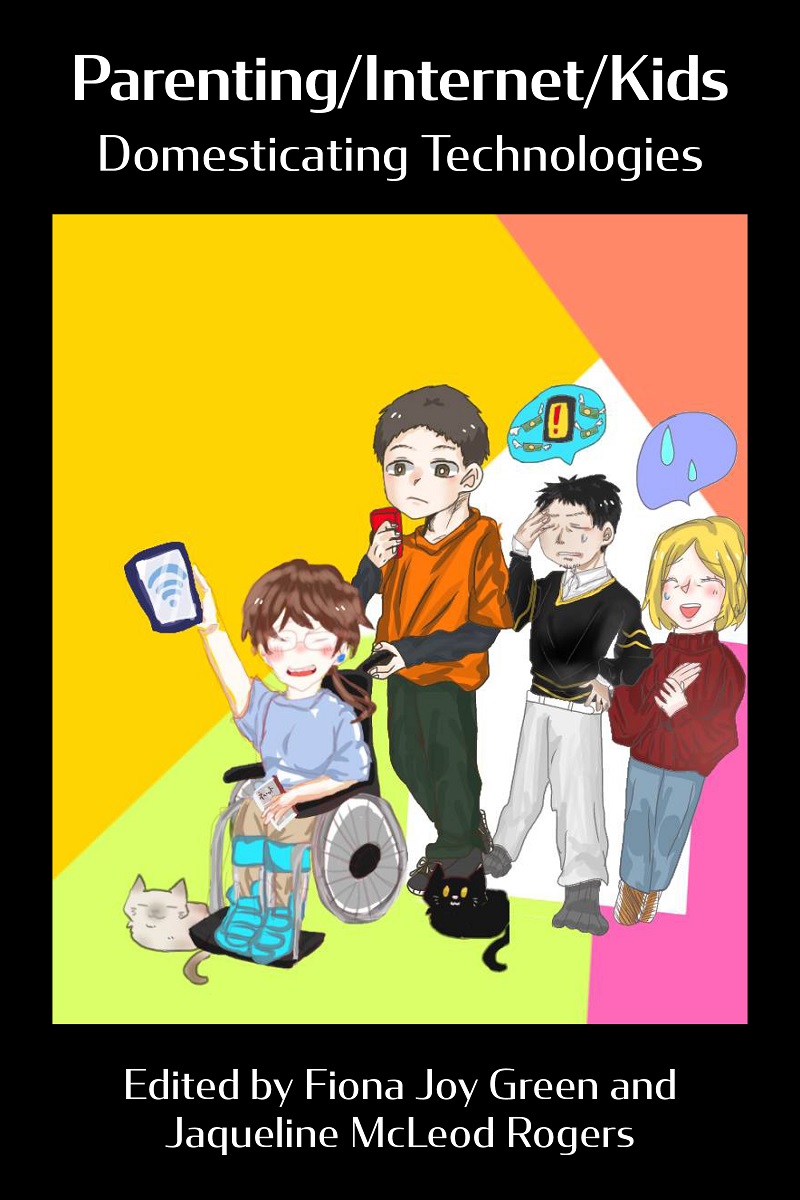
Price: $39.95
Page Count: 336
Publication Date: August 2022
ISBN: 978-1-77258-384-7
"This timely collection considers the ways that parenting is mediated through technologies that impact both parents and children. In looking at the ways we connect— and disconnect-- through digital media, the book shares important insights into how the Internet has opened up and shifted our experiences of family.”
- May Friedman, Author of Mommyblogs and the Changing Face of Motherhood and faculty member at Ryerson University
Parenting/Internet/Kids: Domesticating Technologies is a timely collection of essays that examines how new technologies exacerbate and ameliorate the more challenging aspects of child-rearing and kin-keeping. Combining fascinating first-person and traditional scholarly accounts, the book offers a nuanced perspective on how families and new technologies have co-evolved to adapt to the rhythms and routines of contemporary life. While some chapters reflect on how new technologies facilitate identity expression, community-building and social support, others encourage us to critically examine the unintended consequences of platforms that may simultaneously yield more and less than parents and children have bargained for. At a time when the domestic and intimate sphere has re-asserted itself as a significant part of social life, this book offers a glimpse of our present-day relationship with technology while offering new ways to move forward.
- Margaret MacAulay, PhD, Research Associate, Global Strategy Lab, University of Ottawa, Ottawa ON
“Domesticating Media: Safe to Curl up With?”
Fiona Joy Green & Jaqueline McLeod Rogers
Section I
Moms on Media: Stage and Screen
1.
“Impossible Subjects: Moms and Maternal Ethics in the Digital Space”
Shelley Buerger
2.
“The Smartphone Camera
and the Reconstruction of ‘Good Motherhood’ in the Digital Age”
Carolin Aronis
3.
“Making Space and Time: Digital/Material Divisions and Maternal Life Writing Online”
Astrid Joutseno
4.
“Whose Story is It? Sharenting in Blogs by some Mothers of Autistic Children”
Daena J. Goldsmith & Amalia Ackerman
Section II
Kids on Media: Windows and Doors
5.
“The Kids’ Bedrooms”
Victoria Bailey
6.
“Mothering, Digital Media, and the Privatization of Risk:
Negotiating Boundaries of Use with Academic Expertise, Tweens, and a Global Pandemic”
Janis L. Goldie
7.
“Parents, Technicians, Curators: Shrinking Space and Time in Early Parenthood”
Andrew McGillivray & Angela McGillivray
Section III
Enabling: Digital/Physical Nexus
8.
“Crossed Wires: Mothering/Death/Adult Children”
Elaine Kahn
9.
“Bionic Parenting:
On the Enabling Possibilities and Practices for Parenting with Digital New Media”
Robyn Flisfeder & Matthew Flisfeder
10.
“Enabled by the Internet: A Multicultural Mother and Daughter in Japan”
Suzanne Kamata
11.
“Discourses, Practices and Paradoxes of Natural Parenting in the Digital Age”
Florence Pasche Guignard
Section IV
Regulating Domestic Use and Surveillance: Who’s in Charge?
12.
“Mothering/Cyberbullying/Kids”
Lisa Rosen & Linda Rubin
13.
“No Forwards Please: Indian Mothers on School WhatsApp Group”
Sucharita Sarkar
14.
“Parenting in the Shadow of Corporate Surveillance:
Education Technology and Children’s Privacy in a Pandemic Age”
Jane Bailey & Vanessa Ford
Contributor Notes
Fiona Joy Green, PhD, is a feminist mother and Professor of Women’s and Gender Studies at the University of Winnipeg who believes in the power of revolutionary feminist motherwork. She’s the author of Practicing Feminist Mothering (ARP) and co-editor of four Demeter Press collections that address evolving feminist parenting practices and maternal pedagogies. Fiona also explores parenting and families in relation to the everchanging digital world in her role as co-author of the blog Family Blog Lines: Tal[k]ing Care(https://familybloglines.com/).
Jaqueline McLeod Rogers is a mother of two adult daughters and Professor and Chair (Department of Rhetoric) at University of Winnipeg. Her doctoral thesis studied fiction by women (published as Aspects of the Female Novel) and she has continued exploring women’s experiences and writing. The blog (https://familybloglines.com/ ) eventuated in this co-edited collection. Recently, she’s explored urban space and local place and published McLuhan’s Techno-Sensorium City: Coming to our Senses in a Programmed Environment (Lexington). Marshall McLuhan used to predict we’d live in houses without walls: Are we there yet?


